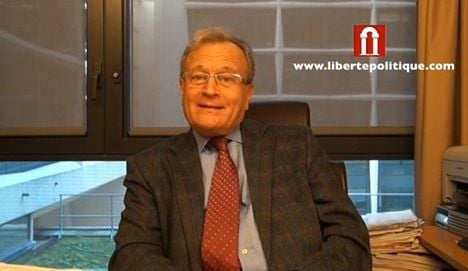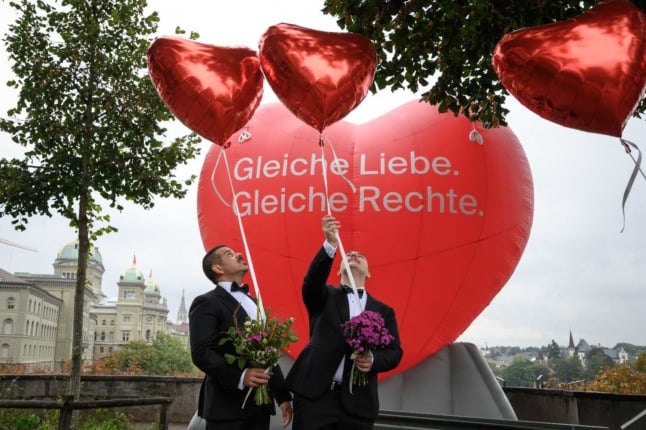Christian Vanneste is an MP for the northern Nord region of France who has often spoken out about gay rights.
In the video, which was put online on Tuesday evening with the title “favouring the family to prepare for the future” (favoriser la famille pour préparer l’avenir), Vanneste talks about the “famous legend of the deportation of homosexuals.”
Homosexuals were among those targeted by the Nazi party in Germany with thousands sent to concentration camps where many died.
Historians believe that homosexuals were also deported from France, particularly from some eastern regions which were annexed by Germany.
Vanneste acknowledges that gays were persecuted by the Nazis, but claims that “apart from these three annexed departments, there were no deportations of homosexuals from France.”
The comments immediately sparked a wave of criticsm across the political spectrum.
The secretary general of the UMP, of which Vanneste is a member, Jean-François Copé, said he “would not shirk his responsibilities” in demanding sanctions about the remarks.
He said in a press conference that the party “unanimously condemns, with the greatest force, these unacceptable statements which are profoundly shocking and intolerable.”
“We have taken the decision to discuss the exclusion of Christian Vanneste from the UMP at our next meeting on Wednesday,” he said. In the meantime, he said the MP would be “immediately suspended from standing in the legislative elections.” These are scheduled for June.
Emmanuel Blanc, president of Gaylib, a gay organisation within the UMP party, said Vanneste “speaks about homosexuals in the way people spoke about Jews in the 1930s.”
Ohter ministers took to Twitter to condemn the remarks, including Nadine Morano, the minister for apprenticeships, who called for his expulsion from the party.
Criticism of the remarks crossed party lines. A spokeswoman for the Socialist presidential candidate, François Hollande, said President Nicolas Sarkozy should condemn the “nauseating ideology.”
On the far-right, the Front National said Mr Vanneste had his history wrong.
“Mr Vanneste needs to re-read his history books. This is really foolish,” said Louis Aliot, vice-president of the party.
In the twenty-minute video Vanneste also offers his analysis of homosexuality, claiming one of its main features is “narcissism.”
“Fundamental to homosexuality is narcissism,” he said. “The foundation is “I refuse the other”, the refusal of the opposite sex.”
He goes on to offer further analysis, for example that gay men prefer partners who “resemble them when they were between 17 and 20 years old.” He also refers to gay marriage as an “anthropological abberration.”
He then complains that a high number of gay people in the media, arts and communications has given gay causes a high profile, out of proportion “with the role that it has in the wider public, where it continues to be extremely marginalised.”
Gay issues have become a major feature of the presidential campaign following François Hollande’s commitment to legalise same-sex marriage and Nicolas Sarkozy’s promise to oppose it.



 Please whitelist us to continue reading.
Please whitelist us to continue reading.
Member comments